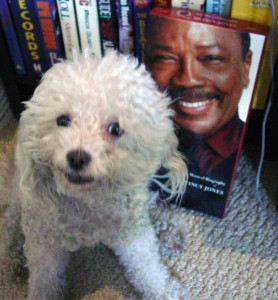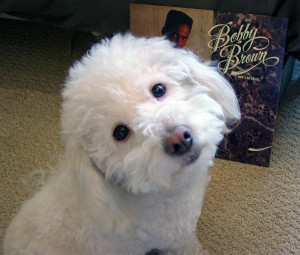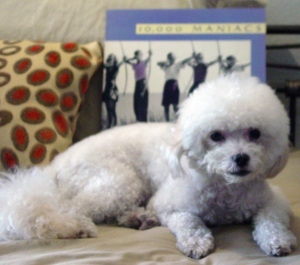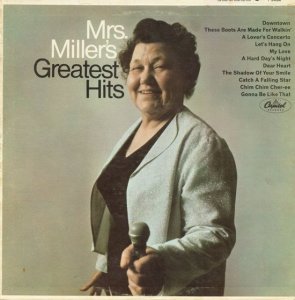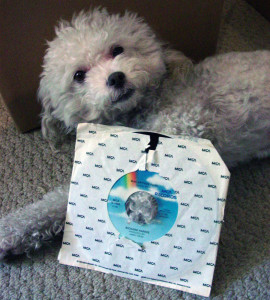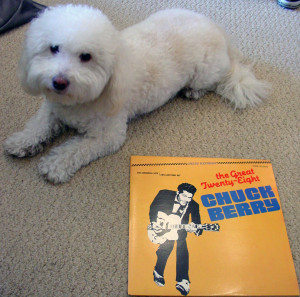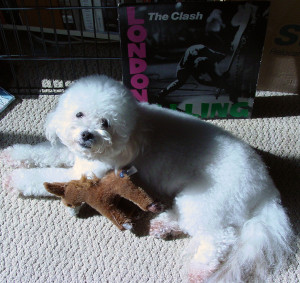1) He’s had a record 79 Grammy Award nominations. He’s won 27.
2) He arranged the Frank Sinatra/Count Basie version of “Fly Me to the Moon,” which astronaut Neil Armstrong played when he first landed on the moon.
3) Jones produced the soundtrack of the motion picture The Wiz. He later said he hated working on it, as he didn’t like most of the songs nor did he like the film’s script. However, on the set on The Wiz he got to know the singer who played the scarecrow, Michael Jackson. Jackson asked him to recommend a producer for his next album. Jones threw out a few names and also offered to produce it himself. Jackson took him up on his offer, though his record label thought it was a bad idea. The album, 1979’s Off the Wall, went on to sell 20 million copies and won Jackson his first Grammy Award.
4) While widely known as the producer of Michael Jackson’s Thriller, Bad and Off the Wall albums, Jones is also the producer of the hit records “We Are the World” by USA for Africa; “It’s My Party,” “You Don’t Own Me” and “Judy’s Turn to Cry” by Lesley Gore; “Angel” by Aretha Franklin; “I’ll By Good to You,” “Stomp” and “Strawberry Letter 23” by The Brothers Johnson; “One Mint Julep” by Ray Charles; and “Love is in Control (Finger on the Trigger)” by Donna Summer, among others. He also worked with Bono, Stevie Wonder, Miles Davis, Little Richard, Paul Simon, Duke Ellington, Ella Fitzgerald, Herbie Hancock, Billie Holiday, B.B. King, Louis Armstrong, Dizzie Gillespie, Sarah Vaughan, Diana Ross, Dinah Washington, Peggy Lee, Chaka Khan, Tony Bennett, George Benson, Luther Vandross, Sammy Davis Jr., Johnny Mathis, James Ingram and Patti Austin, plus plenty more.
5) “Quincy Jones is one of the most versatile and potent figures of popular culture….When you listen to his impressive and monumental body of work, it’s easy to understand how and why he’s touched such a broad audience of music lovers. He’s done it all.” – Michael Jackson
6) Time magazine named him one of the most influential jazz musicians of the 20th century.
7) In the early 1960s he became the Vice President of Mercury Records, the first African-American at a major record company to reach that executive level.
8) His middle name is Delight.
9) Along with Bob Russell, he became the first African-American to be nominated for an Oscar for Best Original Song for “The Eyes of Love” from Banning.
10) With seven Oscar nominations, he is tied with sound designer Willie Burton as the African-American with the most Oscar nominations.
11) Jones produced the film The Color Purple, his first foray into film production. He asked Steven Spielberg to direct it, which he did. It was nominated for eleven Academy Awards.
12) Among his 33 movie scores are the ones for The Color Purple, In the Heat of the Night, In Cold Blood, and Bob & Carol & Ted & Alice.
13) He has a daughter with actress Nastassja Kinski as well as six other children.
14) He’s the father of actress Rashida Jones. She’s pretty.
15) In 1988 he formed Quincy Jones Entertainment, who produced the television program The Fresh Prince of Bel-Air.
16) He never learned how to drive.
17) Among the charities Jones supports are American Foundation for AIDS Research (AmfAR), Global Down Syndrome Foundation, Gay and Lesbian Alliance Against Defamation (GLAAD), MusiCares, Elton John AIDS Foundation, Rape Foundation, UNICEF, NAACP, Nelson Mandela Centre of Memory, and Barbara Davis Center for Childhood Diabetes.
18) In 1974 Jones suffered a brain aneurysm. He was given a 1 in 100 chance of surviving. Family and friends, including Richard Pryor, Marvin Gaye and Sidney Poitier, planned a memorial service for him, which he got to attend.
19) Today he turns 82 years old.
20) “The thing is to find your lightning – and ride your lightning.” – Quincy Jones
Click here to like Tunes du Jour on Facebook!
Follow me on Twitter: @TunesDuJour
